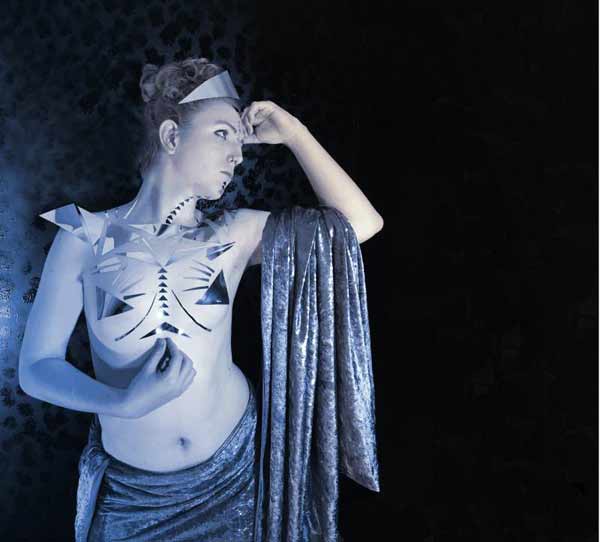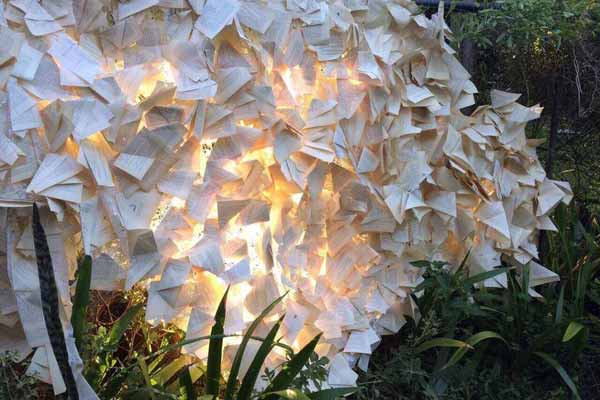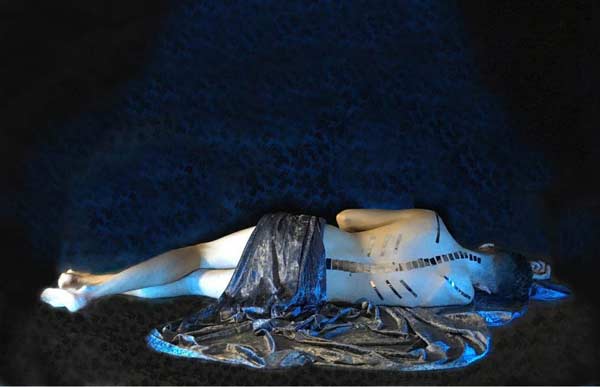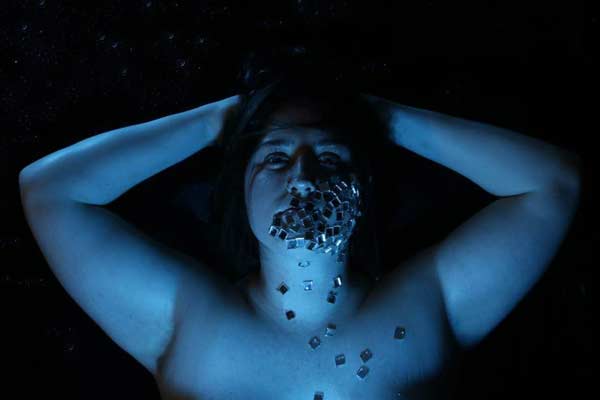Magnetic North Theatre Company is returning to Anywhere Theatre Festival after their sell-out 2016 season, with 'Medusa'.
This performance addresses Medusa being blamed for her own rape, and gives you access to her cave, as Magnetic North explores the notion of victimhood in the public eye. Here, Writer and Director Artemis Green answers some questions about the performance.
First of all, the tales of Medusa have been told and retold over the years. Which ‘version’ of the story will Magnetic North be tackling for Anywhere Theatre Festival?
The simplest answer would be "our own version". We're most closely working to the classical text where the Gods are identifiable characters and Medusa is a woman who is headstrong and confident. We weren't interested in a Medusa who only makes a beautiful victim.
Why did you decide on ‘Medusa’ for this festival?
Medusa was a mortal woman that a God decided to destroy. She was blamed for her own rape and exiled. When we look at stories of people like Bill Cosby there is a stark power imbalance inherent in a household name vs a nobody, and often an unfair backlash against an accuser who dares point out a superstar's flaws. It happens with athletes, politicians... Medusa's story, even after thousands of years, is allegorical for how we treat victims of rape and abuse in 2017. The name Medusa is recognisable as the lady with snakes for hair but very few people know what she was 'punished' for.
Why do you think Anywhere Theatre Festival is a good home for ‘Medusa’, and what are your thoughts on the festival in general?
Magnetic North has been part of Anywhere Festival for a number of years now; site specific work is becoming a speciality of ours. I think Brisbane needed a shake up to its art scene: there are a lot of venues, companies and events that people outside the arts community feel are inaccessible to them or that they will be mocked for not 'getting it'. MN thinks theatre that is complex or elite for the sake of it is just public masturbation. Anywhere Festival is good for 'Medusa' specifically because we can place her and this story directly in 'the real world' and we get to build something truly special that we could never do in a traditional venue.
This show, although featuring an icon of mythology, deals with some contemporary issues too. What are they, and how important was it to you to address these?
Something we're really into is encouraging critique of ideas that we support. So we're a feminist company but there is a lot of violence and contradiction that happens in modern feminism. We're not shy about having that conversation. We also look at the interactions between being gay, toxic masculinity and feminism because I think there is a lot of work still to do in the activist and queer communities. It's important, to me, to the company, to have conversations about difficult topics. Rape isn't pleasant and we're not going to gloss over it for the audience. The friction between some of the queer community and some feminists is uncomfortable (as a queer feminist it's confusing honestly) and it gets people flipping mad. We want to get past the anger and have real connections.
Magnetic North Theatre Company is described as ‘an inclusive feminist theatre company’ that seeks to elevate silenced voices. What are the company’s main principles when it comes to this? How do you choose what issues to tackle and what voices to elevate?
In media, public discussion and politics there is a silent agreement that some people's voices are more important (like way more important) than others'. Those voices /tend/ to be white, cisgender, straight, able and male. There is a devaluation of minorities' point of view because we see maleness and whiteness as a default setting and anything else a deviation. For us, it's important to flip the power balance. We want to tell stories that elevate feminine, trans, disabled, queer, non-white voices and do so with dignity rather than tokenism. Practically this looks like careful casting choices, a very inclusive development process and a consistent intention to be better allies and activists.
What were some of the challenges you faced writing this show?
When you're working with very very old stories you have the luxury and curse of a huge amount of source material. Our process as a company includes devising a lot of elements, sifting, and remixing it into a show. Doing both the sorting and devising at once was a glut of information but it was so worth it.
Last year for Anywhere, Magnetic North presented ‘Cassandra And The Boy Doll’. Are there any similarities between that show and ‘Medusa’?
'Cassandra and The Boy Doll' was a piece about a trans woman and her external male identity. We worked with a different playwright on that piece and the intention was both a dramatic and an educational one: we wanted to show what being trans meant outside of the furore about Caitlyn Jenner at the time. In that way, 'Medusa' is somewhat similar: we're responding to the cultural climate right now. Aesthetically this show is more complex than anything we've done before. We have created a little world in Highgate Hill complete with a wall of words and a fae bazaar. 'Cassandra' didn't have that.
How are you hoping people respond to ‘Medusa’, and what is the take home message?
I hope they come curious and leave with conversation. This isn't something people can go away and just fix – it's an ongoing movement towards a world where sexual assault is not a sin of the victim. I think it might offend some people, and for others it will speak to their real experiences.
'Medusa' plays at The Fae Place, 27 Jones Street Highgate Hill from 11-21 May.

